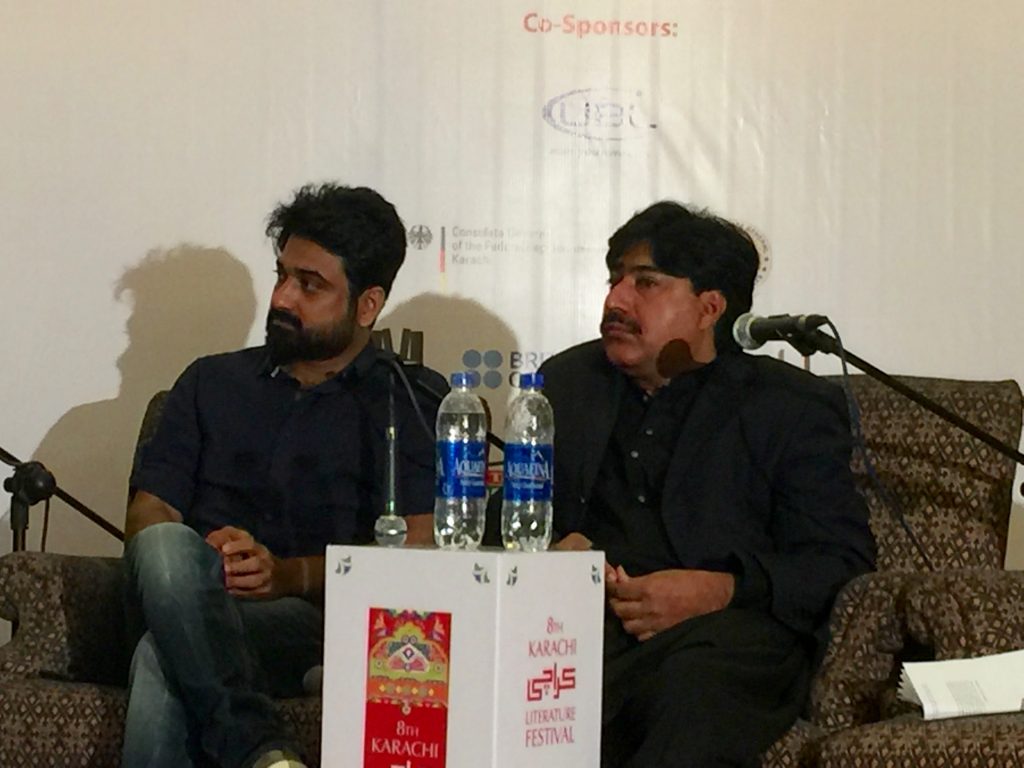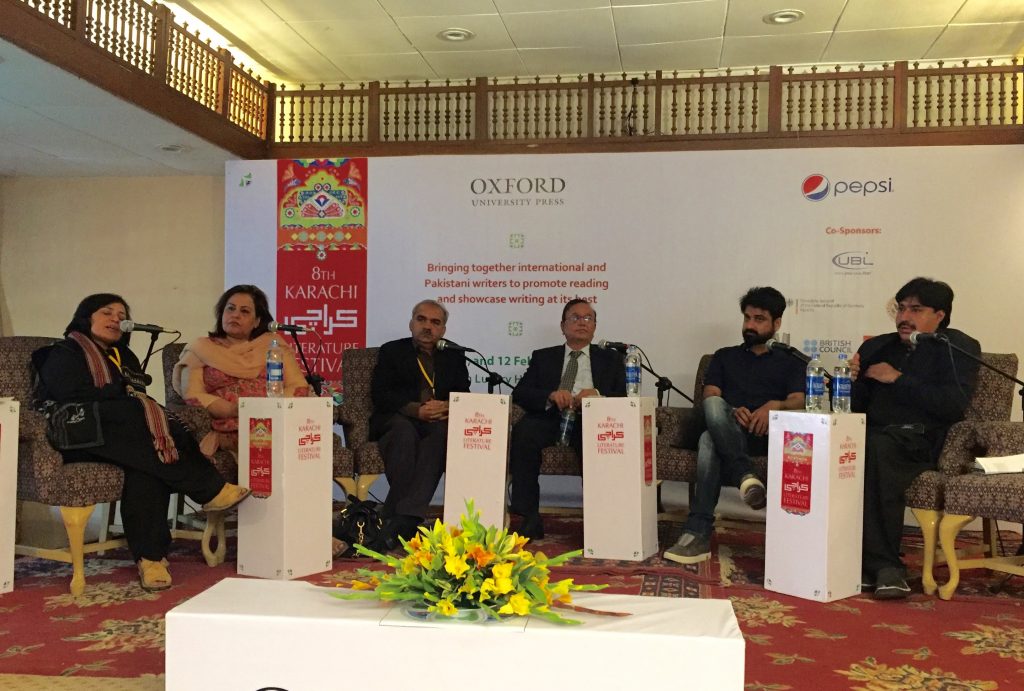I dream in Sindhi, Therefore I write in Sindhi
In a panel discussion at the Karachi Literature Festival titled ‘Sindh Speaks’, ironically, Sindhi remained silent as the session was conducted in Urdu. The all-Sindhi ensemble, beginning with moderator Amar Sindhu, one after the other, spoke in Urdu about Sindhi poetry and literature. But then a strange thing happened. When it was Sindhi poet and author Ahmed Solangi’s turn to speak, he was unable to tame his inner Sindhi and put his foot down, saying “I dream in Sindhi, therefore I will speak in Sindhi.”
Solangi highlighted the duality faced by a majority of contemporary Sindhi writers, who live in the city yet are umbilically connected to their villages and ancestral homes in the interior. “We inevitably embrace those unglamorous day-to-day realities of rural life as much as the vibrant, chaotic environment of the metropolis. Sites and images of ‘home’ — uneventful details, such as the unpaved village alley that lay under a blanket of darkness — are imbedded in our psyche as much as the bright city lights.” The two, often conflicting realities shape the narrative of the cannon of contemporary Sindhi poetry and literature.
 While Sindhi poetry has been more political in the past, current trends lean towards the fictional and creative, according to Solangi. He argued that just the way Urdu poetry has been unable to produce any material to match the quality of Faiz Ahmed Faiz (1911-1984), so too has Sindhi poetry not been able to reach the heights once attained by Shaikh Ayaz (1923-1997).
While Sindhi poetry has been more political in the past, current trends lean towards the fictional and creative, according to Solangi. He argued that just the way Urdu poetry has been unable to produce any material to match the quality of Faiz Ahmed Faiz (1911-1984), so too has Sindhi poetry not been able to reach the heights once attained by Shaikh Ayaz (1923-1997).
Saif Samejo, frontman of the Sufi-poetry-inspired rock outfit, The Sketches, said that the Sufi poetry he read while growing up had a powerful influence on him and lead to the fusion of the ethnic and the western — folk and rock — effectively embodied in his band. “Sindhis living in the UK and US used to contact us on Facebook, telling us that their children who grew up in the west and were unable to speak Sindhi, were listening to our Sindhi songs. This sort of contact with fans was a learning process for us and we began to understand the mindset of the audience,” he explained.
Author, poet and playwright Noor ul Huda Shah said she believed that “Shah Abdul Latif Bhitai was a feminist,” while heaping praise on the Sufi poet. Speaking on literary standards in general, she argued that if Sindhi literature was successfully translated into all the languages of Pakistan, it would raise the bar of the quality of literature in the country as a whole.
Other panelists at the session included author, translator and publisher, Zaffar Junejo and poet Aakash Ansari.
The writer is a staffer at Newsline Magazine. His website is at: www.alibhutto.com




